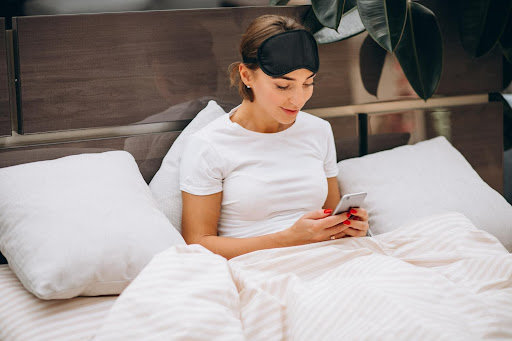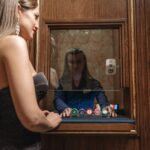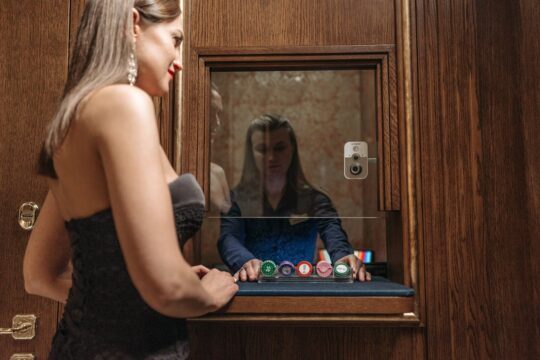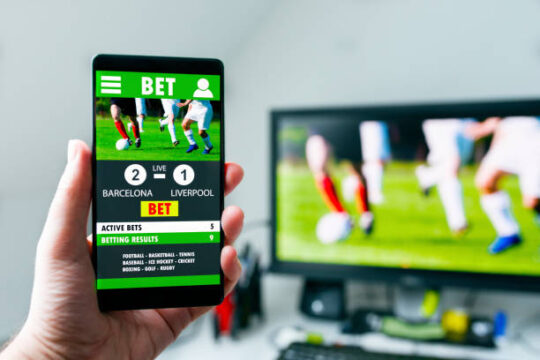Modern developments have made it much simpler for us to divert our attention from daily concerns. When it comes to our unconscious selves, there is a trade-off. According to research, the growing use of gadgets is causing us to accumulate a sleep debt, which is the result of not getting enough sleep over time.
Most studies have found a negative correlation between technology use and sleep disruption, particularly among younger generations. However, depending on how it is used before bed, technology use can have either a positive or negative impact on sleep.
How Technology Negatively Affects Sleep
Are you having trouble getting to sleep because you keep browsing through your smartphone? Nowadays, it would be nearly hard to get by without a smartphone. We use our phones for a variety of things in addition to making calls, including news, work, streaming, social networking, shopping, and more. Gone are the days when phones were only used for making calls.
But this constant scrolling might not be the best choice for our health and welfare. Numerous studies have linked the use of cellphones and social media to increased levels of anxiety and depression, particularly in young people. The quality of your sleep may also be impacted by using your smartphone after night.
The fact that modern technology has changed our sleeping patterns is one of the problems it has caused. Before going to bed, it’s perfectly usual for someone to check their phone or watch TV. This had the unfavourable side effect of disturbing natural sleep cycles in a number of ways. Here are some examples of how technology might be bad for sleep.
Blue Light Keeps Us Up
Without going into too much detail, visible blue light has the maximum energy and the shortest wavelength. Before artificial lighting and tiny, portable computers became commonplace thanks to contemporary technology, the sun’s natural light was the only source of blue light. More often than ever, especially at night, we are exposed to blue light.
More than any other type of light, blue light interferes with melatonin levels, which in turn impacts sleep. According to a study, two hours of nighttime exposure to blue light can significantly reduce the quantity of melatonin in the brain, lowering the quality of all sleep. Melatonin is a hormone that assists in regulating your body’s internal clock and generally makes you feel tired at night in response to darkness. However, exposure to blue light can interfere with this process.
Not that blue light is the devil. Blue light treatment is frequently used to treat seasonal affective disorder, a type of depression that happens with seasonal change and is typically felt during the fall and winter. However, too much of it from a phone or computer screen will impair your ability to sleep.
Overstimulation Keeps Us Awake
The Internet of Things keeps us all connected to one another and everything, so checking texts or business emails quickly before bed seems like a sensible thing to do. Since they enable us to connect to almost everything for enjoyment and information, smartphones are a prime illustration of that.
Checking your phone before bed keeps your mind “psychologically engaged,” which “stimulates the brain so we are more active and awake.” However, keeping active not only tricks the mind, but it also makes it more difficult to fall asleep if you see or read anything that is really intriguing or captivating.
Modern technology is not only brilliant, but it also serves as a window to the entire world. As a result of things like friends’ experiences or the most recent news headlines, people are always being updated with new information. A study found that seeing these items can stimulate our minds, making it difficult for us to unwind, and impair our ability to go asleep.
However, there are some ways that technology can be applied to improve our sleep in general.
How to use Technology for good?
There are methods to use technology to get a better night’s sleep, despite the fact that it might seem like it will always disturb our sleeping patterns. There are many ways to understand sleep habits, from wearable technology to smartphone apps.
Sleep Tracking Apps
Using a sleep tracking software to keep track of your sleeping patterns and find areas for improvement is one of the simplest ways technology may help you sleep better. While sleep apps won’t instantly make you sleep better, they can offer useful insight into your sleeping patterns. Knowing where you can improve and using that knowledge to your advantage will help you sleep better at night. Your weekly schedule’s consistency is among the most crucial factors you may take into account. Utilising a sleep tracking tool can help you identify trends and make changes. For instance, sleep disturbance can result from waking up very early on some days and very late on other days. You can establish objectives to increase the regularity of your sleep by tracking with an app.
There are numerous apps available that employ unique sleep tracking technology to analyse your sleep and lifestyle choices and integrate the data to offer you a better knowledge of your sleep. Then, based on your sleep cycle, you may set an alarm to wake you up at the most advantageous moment.
Alternatively, some apps function like a fitness app but for sleeping if you’re more goal-oriented. They assign a score to your sleep based on criteria and offer suggestions for how to get more rest.
A study found that while the applications can help you gain insight into your sleeping patterns, there is a dearth of studies demonstrating their overall clinical utility. However, taking a closer look at your sleeping habits can be the first step to achieving a better night’s sleep. If you have any questions, make sure to ask your doctor.
Meditation Apps
An app that can help you relax your mind and body is another form of technology that can be useful. According to research, mindfulness meditation and other forms of meditation have been demonstrated to enhance the quality of sleep. Apps for mindfulness can help you set the tone for sleep, while sleep tracking apps can help you gain a sense of your sleeping habits.
Moreover, if you’re struggling with back pain issues, buy orthopedic mattress online that offers firm back support and helps you relax pressure points and makes it easy to nod off. By using a right mattress along with meditation apps, you can avoid the burden of having to practise meditation on your own in order to get a better night’s sleep.
Blue Light Filters
It’s difficult to avoid using your phone, computer, or tablet right before bed, let’s face it. Who doesn’t enjoy reading an essay or binge-watching a TV before bed? The entire world is in the palm of your hand, which seems convenient. While gazing at a device right before bed can reduce the quality of your sleep, blue light can also have negative consequences.
According to a study, using blue light-filtering glasses can improve sleep quality. According to the same study, blue light filters on your computer and phone can also help reduce the quantity of blue light that reaches your eyes, improving sleep quality.
If you’re looking to enhance comfort in your bedroom space, buy luxury mattress online and enjoy a luxurious yet comfortable sleep environment for a good night’s sleep.
Conclusion
Health and enjoyment must be balanced, as with most things in life. The useful and entertaining components of life have been merged by modern technology into one portable object that fits easily in your pocket.
While many people’s lives have been made easier by smartphones, they aren’t necessarily bad things. However, learning how to strike a healthy balance can mean the difference between getting a decent night’s sleep and rushing to work weary.




